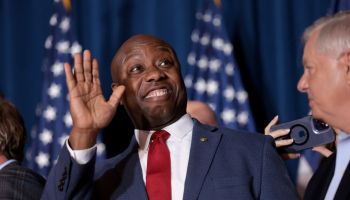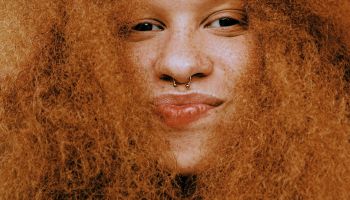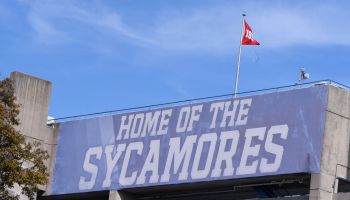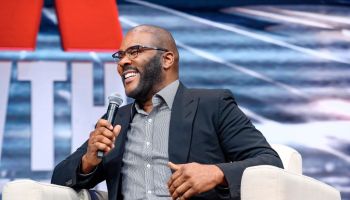With mugs of beer and calming words, President Barack Obama and the professor and policeman engulfed in a national uproar over race pledged Thursday to move on and try to pull the country with them.
There was no acrimony – nor apology – from any of the three: black Harvard professor Henry Louis Gates Jr., white Cambridge, Mass., police Sgt. James Crowley, who had arrested him for disorderly conduct, and Obama, who declared on national TV that the police had “acted stupidly.” But neither Gates nor Crowley backtracked either, agreeing they still had differences.
Said Obama after the highly anticipated, 40-minute chat on the Rose Garden patio: “I have always believed that what brings us together is stronger than what pulls us apart.”
“I am confident that has happened here tonight, and I am hopeful that all of us are able to draw this positive lesson from this episode,” said the nation’s first black president.
Under the canopy of a magnolia tree in the early evening, Obama joined the other players in a story that had knocked the White House off stride. Vice President Joe Biden joined them for drinks and snacks.
The policeman and the professor both expressed respect for each other after their dispute that unleashed a furor over racial profiling in America.
It all began two weeks ago when Crowley was called to investigate a potential burglary at Gates’ house and ended up arresting the protesting professor for disorderly conduct. The matter mushroomed when Obama made his comment in a prime-time news conference. The president later expressed regret. In Cambridge, the charge was dropped.
“We agreed to move forward,” Crowley said Thursday night when asked if anything was solved in the meeting. “I think what you had today was two gentlemen agreeing to disagree on a particular issue. I don’t think that we spent too much time dwelling on the past. We spent a lot of time discussing the future.”
For his part, Gates said he and Crowley had been caught up as characters in a larger narrative about race over which they had no control.
“It is incumbent upon Sgt. Crowley and me to utilize the great opportunity that fate has given us,” Gates said in a statement. He said their task must be to foster sympathy among Americans about “the daily perils of policing on the one hand, and for the genuine fears of racial profiling on the other hand.”
Although Obama had invited Crowley and Gates as part of what he called a “teachable moment,” it wasn’t quite reachable for the masses. The coverage allowed the public to get the we’ve-come-together photos and video footage that the White House wanted, while keeping the discussion private among the men.
They were seen chatting with each other, each with a mug of beer – Biden’s was nonalcoholic.
The media were stationed far away, out of earshot, and ushered away quickly.
Crowley, 42, and Gates, 58, said they were planning to meet again, and Obama hopes he can now pivot back to health care and other issues with this distracting story behind him.
There’s been a political cost for Obama. The two-week episode has stolen attention from his agenda and has drawn negative public reviews on how he handled the matter.
In Massachusetts, meanwhile, a black sergeant who was with Crowley at Gates’ home said Thursday he’s been maligned as an “Uncle Tom” for supporting the actions of his white colleague, according to an e-mail that CNN said it received from the sergeant. The officer, Leon Lashley, said he “spoke the truth” about the arrest, and he said Gates should consider whether he “may have caused grave and potentially irreparable harm to the struggle for racial harmony.”
At the White House, Crowley and Gates wore dark suits, more formal than Obama and Biden who had ditched their coats in the early evening. The president nibbled on snacks and was seen laughing at one point.
Obama called it a “friendly, thoughtful conversation.” He praised Crowley and Gates for having already spent a little time listening to each other.
That had happened, Crowley explained later, when he and Gates crossed paths as they toured the White House separately with relatives who accompanied them. They continued their tour as one large group.
Before anyone showed up, Obama did what his aides had been doing for days: lowering expectations.
“I noticed this has been called the ‘Beer Summit.’ It’s a clever term, but this is not a summit, guys,” Obama told reporters. “This is three folks having a drink at the end of the day, and hopefully giving people an opportunity to listen to each other. And that’s really all it is. This is not a university seminar.”
The White House meeting drew such media interest that press secretary Robert Gibbs said he looked forward to facing no more questions about what beers each man would drink. For the record, it was Bud Light for Obama, Sam Adams Light for Gates, Blue Moon for Crowley and nonalcoholic Buckler for Biden.
Before the photo-op moment of diplomacy, Obama said he was “fascinated by the fascination about this evening.”
“Hopefully, instead of ginning up anger and hyperbole everybody can just spend a little bit of time with some self-reflection and recognizing that other people have different points of view.”
Obama said last week the episode could be a “teachable moment” on improving relations between police and minority communities.
In practice, that boiled down to a good, productive conversation. The hope, in turn, was that people in communities across the nation would see the meeting as a model for how to solve differences – more listening, less shooting from the lip.
The White House said it did not pay for any transportation or other accommodation costs for Gates or Crowley.
At the time of the incident, Gates had demanded an apology from Crowley and called him a “rogue policeman.” After Obama’s “acted stupidly” comment, Crowley said that, while he supported the president, Obama was “way off base wading into a local issue without knowing all the facts.”















